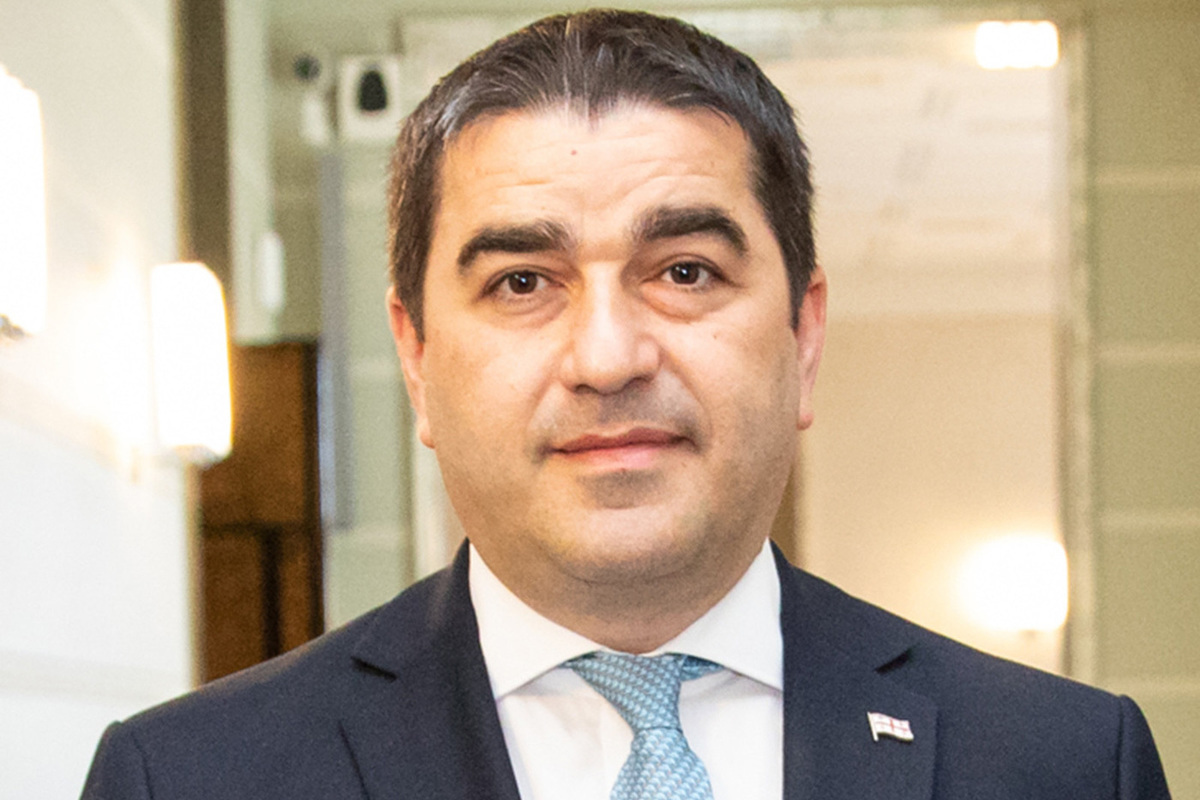Georgian Dream was accused of authoritarianism before the elections: parliament has more opportunities
[ad_1]

Georgian parliament speaker Shalva Papuashvili has signed a law giving the assembly more power over the election commission ahead of parliamentary elections in October. Critics have already begun to call this step a power grab before the vote and accuse the government of authoritarianism.
The speaker of Georgia’s parliament on Monday signed a law giving the assembly more power over the election commission ahead of parliamentary elections due in October, Reuters reports.
The path to the adoption of the law was thorny. Last week, parliament overrode the veto of the bill by the country’s President Salome Zurabishvili, who accused the Georgian Dream of “anti-democratic” and “pro-Russian” tendencies.
The adopted law allows the parliament, controlled by the Georgian Dream bloc, to appoint commission members from candidates selected by Speaker Shalva Papuashvili, also a member of the bloc.
Critics say the move will strengthen Georgian Dream’s control over elections, while the government is accused of becoming more authoritarian.
Zurabishvili said the changes could lead to a “biased and ruling party-controlled election administration.”
But no matter how Zurabishvili tries to convict Georgian Dream of something, this party still retains an enviable chance of being re-elected for a fourth term in a row.
According to a survey conducted in April 2023, if parliamentary elections in Georgia had taken place then, 19% of respondents would have voted for the ruling Georgian Dream party.
The rating of “Dream”, however, decreased by 6% when comparing its popularity with the figures for 2022. But the second most popular party, the United National Movement, had 14% support in April last year, which indicated a 2% increase in ratings.
However, here’s another interesting thing: two large Georgian parties (both the ruling and the opposition) also topped the list of parties with the highest negative ratings.
At the same time, the National Movement tops this list (39% of respondents said that under no circumstances would they vote for the party founded by ex-President Mikheil Saakashvili in the elections). The second place goes to “Georgian Dream” (about 34% of respondents categorically refuse to support it).
Now the ruling forces of Georgia are actively promoting and adopting various kinds of bills, which can certainly be considered as preparation for the upcoming elections.
Thus, on March 25, Georgian Dream initiated a broad constitutional amendment to “protect family values” before introducing “several dozen” specific bills “in the near future.”
According to the head of the party in parliament, Mamuka Mdinaradze, the ruling team is “obligated” to protect constitutional rights and freedoms, “no matter how unconventional and different their way of life may be”, as well as “to protect family values in a very principled way”: “We decided initiate, first of all, constitutional amendments that will clearly spell out guarantees of family values and the protection of minors, after which in the near future we will also initiate corresponding and more specific amendments to laws.”
The changes follow comments from Mdinaradze in early March, when he said the parliamentary majority would introduce a legislative initiative to “protect society from pseudo-liberal ideology,” according to English-language news platform Agenda.ge.
To adopt these amendments, a minimum of 113 votes of deputies will be required. Currently, the parliamentary majority (Georgian Dream and People Power) has only 83 seats in parliament.
In addition, Mamuka Mdinaradze also responded on Monday to the proposal of the opposition party “United National Movement” to introduce checks of Georgian judges by foreign embassies. He stated that these calls are “directly aimed at limiting the independence of domestic judges.”
“Europe cannot issue an ultimatum of a choice between national sovereignty, judicial independence and European integration. In my opinion, no one can do this. Some statements may be published, but it is impossible to raise such an issue,” said the head of the ruling party.
Earlier, Georgian Prime Minister Irakli Kobakhidze said that the idea of introducing verification “contradicts the country’s constitution.”
[ad_2]
Source link








